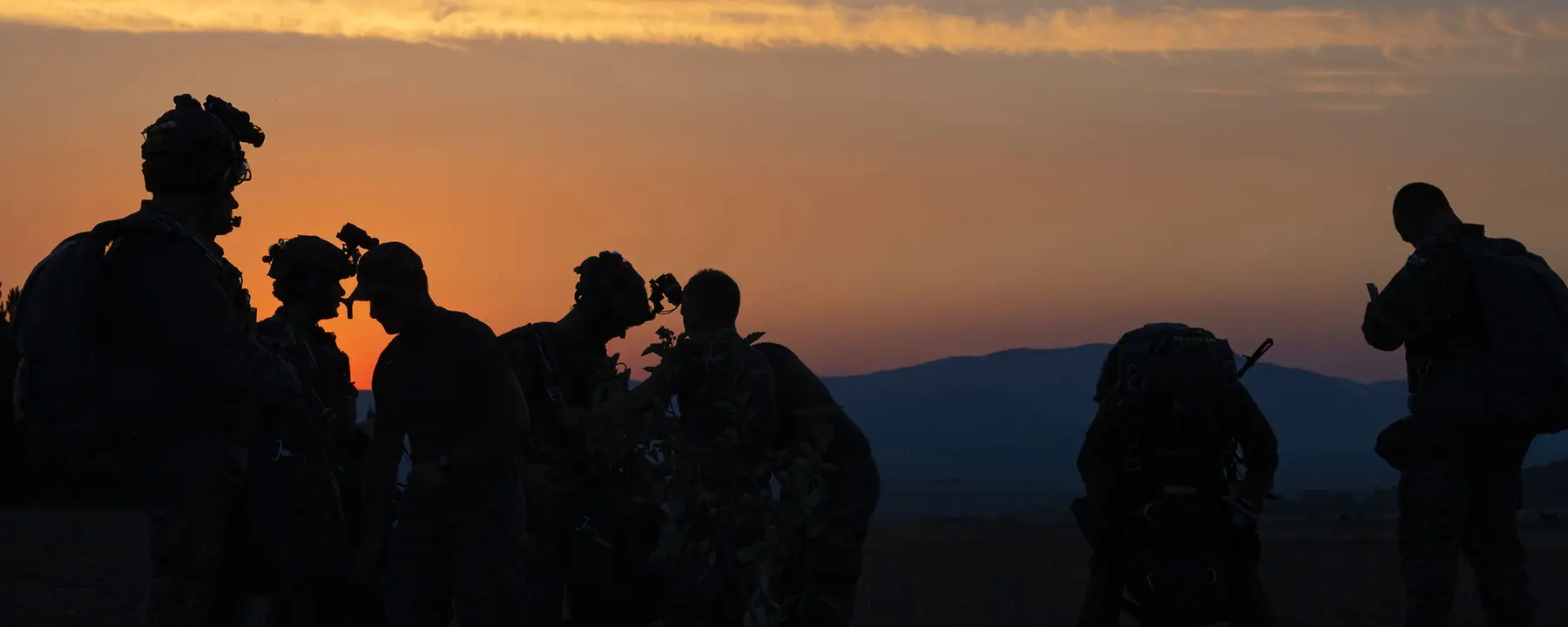Success using stellate ganglion block for PTSD leads to a 5-year follow-up study at 4 U.S. military facilities
Objective
To further study physiological and psychological outcomes among military Service members who have received stellate ganglion block (SGB) to treat posttraumatic stress disorder (PTSD) or other non-pain mental health disorders.
Approach
Participants already scheduled to receive an SGB for treatment of PTSD or other conditions will be followed up via in-person and web assessments for a period of a year.
Impact
This study will determine if SGB is an acceptable PTSD treatment for the military community while assessing associated changes in symptoms of PTSD and other conditions/behaviors, including suicidal ideation, alcohol use, anxiety and depression, neurocognitive functioning, and tinnitus.
Treating Posttraumatic Stress Disorder in the Military Community
Treating the aftereffects of trauma is a timely and daunting task. PTSD can develop when an individual experiences any traumatic event, but it disproportionately affects the military community. Although evidence-based psychotherapies for PTSD exist, some Service members with PTSD do not wish to undertake them, and many Service members who do complete these treatments do not fully benefit. Similarly, medications for PTSD are less effective than psychotherapy for PTSD and are also accompanied by unpleasant side effects.
Ultimately, if stellate ganglion block is shown to be an effective treatment, it will offer a quick and powerful way to treat PTSD that is well-aligned with military culture. This would improve Service member health, readiness, and performance. In addition, this research would suggest that SGB may be an effective treatment for civilians as well.
RTI studying stellate ganglion block for PTSD
Since 2014, RTI has been evaluating new PTSD treatments to support the military community. The RTI team demonstrated the effectiveness of SGB treatment through our original, randomized controlled trial published in the Journal of the American Medical Association- Psychiatry in 2020.
What is stellate ganglion block and how does it work?
SGB entails injection of a long-acting local anesthetic into the base of the neck. The placement of the anesthetic is near a “switching station” for the sympathetic nervous system, which controls the body’s “fight or flight” response. SGB has existed for a century as a treatment for pain conditions, but it has only been considered as a possible treatment for PTSD in the past 15 years. In our original randomized controlled trial, we compared the outcomes of Service members who received SGB to those who were given a sham injection (placebo).
The study took place at three U.S. military facilities coordinated by RTI. SGB proved beneficial in treating PTSD for the 113 active-duty Service members participating in the trial. According to some participants, while the SGB did not “cure” their PTSD, it allowed them to better control their emotions and gave them relief from anxiety.
Stellate ganglion block for PTSD treatment success leading to a second study
The study’s success was announced in 2019, but our team was left with additional questions. In 2022, RTI announced a follow-up SGB study, which will address PTSD and other outcomes, such as depression and anxiety, sleep difficulties, and neurocognitive functioning. The study will also consider the intermediate-term effects of SGB and how it impacts physiological and psychological characteristics of Service members and Veterans over time.
“This study will build on our original randomized controlled trial by providing additional information about SGB and its use. Importantly, this new study will follow participants for a period of a year, so we can learn about sustained effects of SGB as well as other changes over time,” said Kristine Rae Olmsted, the study Principal Investigator.
Goals for RTI’s second SGB for PTSD treatment project
The second study will collect data over the course of 2 and a half years. The program has expanded to include 300 Service members and Veterans, who will receive SGB at one of four study sites.
The program’s enrollment will be based on individuals who are seeking SGB treatment not specific to pain control. Our team will conduct 2, 4, 6, 9, and 12-month follow ups with participants to assess their symptoms of PTSD and other related conditions/behaviors, including suicidal ideation, generalized anxiety, alcohol use, depression, general functioning, neurocognitive functioning, tinnitus, serious mental illness, and sleep. The study aims to address the following questions:
- Will symptoms of PTSD and other outcomes of interest (such as anxiety, depression, sleep difficulties, and tinnitus severity) decrease over time?
- For how long after SGB are symptoms of PTSD and other outcomes of interest decreased?
- Are there neurocognitive and performance impacts associated with SGB?
- What role does the number of SGB treatments play in symptom trajectories?
- Does the type of traumatic exposure among those with PTSD symptoms play a role in treatment effectiveness?
- Do activity duty Service members and Veterans respond differently to SGB?
RTI’s commitment to supporting the military community
Studying SGB as a treatment for PTSD is a testimony to RTI’s history of innovative military support. The military community often faces barriers to treatment, including stigma around seeking mental healthcare. SGB is an effective treatment for those battling PTSD symptoms, and we hope it will be widely accepted by both the military and civilian communities; however, more research is needed. The results of our study will inform the use of this treatment for Service members and Veterans with PTSD.
Learn more about our research and capabilities for holistic military support.



